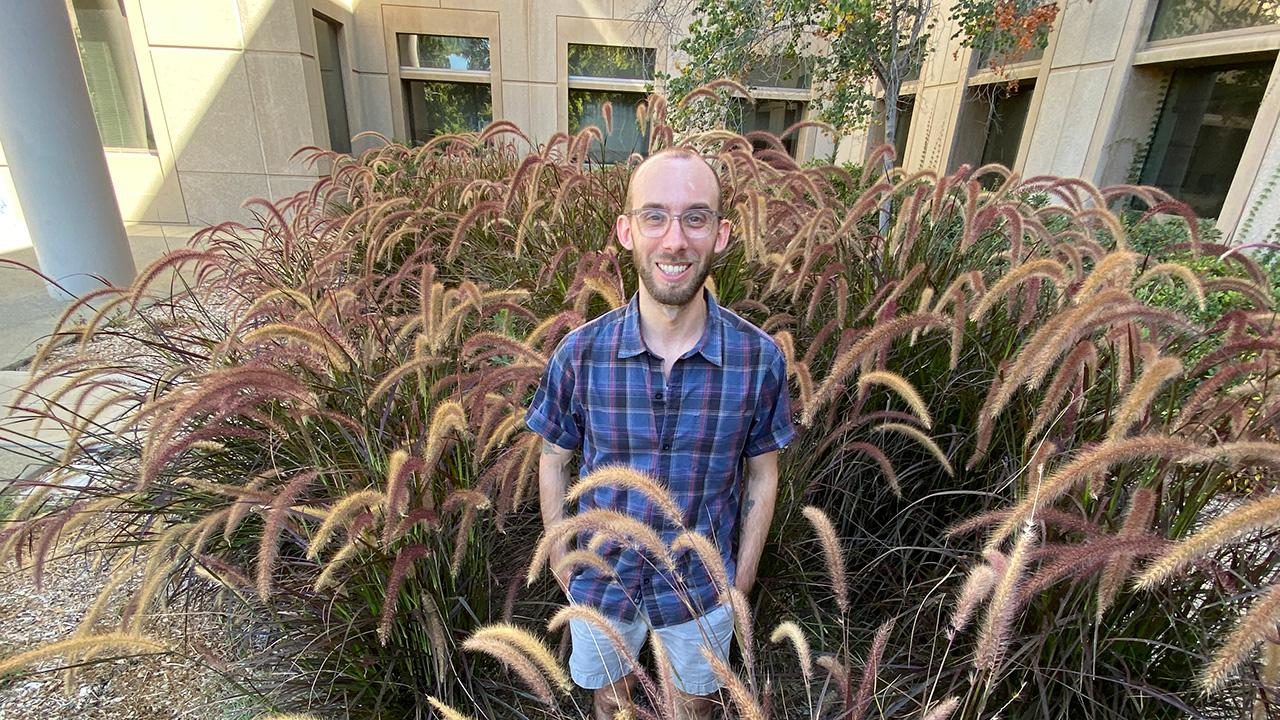
Justin Valliere brings expertise in restoration ecology
It all started with pumpkin seeds
Justin Valliere has been hired to expand the Department of Plant Sciences’ reach in the fields of invasion and restoration ecology. Valliere started as an assistant professor of UC Cooperative Extension in July.

Valliere seeks ways to restore California's native plant communities amid the onslaught of invasive plants and a range of environmental changes. He thinks it’s important to bring youngsters into the research world, training them to care about nature and inspiring them to form the next generation of restoration professionals. Cooperative Extension offers a great way to combine these threads into a network that can be cast across the state and used as a model elsewhere, Valliere said.
He hopes to enhance restoration efforts statewide, enthused by the progress of his most recent projects in southern California’s Mojave Desert and Santa Monica Mountains. His work includes the impacts of automotive emissions (they add nitrogen to the biological system, while making it less tolerant of drought), and the results of mowing non-native, invasive grasses (it reduced non-native grass cover and led to a slight increase in native bunchgrass).
“California has huge amount of ecosystem diversity,” Valliere explained. “CE already is such an effective system for supporting agriculture, but it’s also an important model for natural resource management and restoration… There is a real need for help advising folks through-out the state about managing and restoring natural lands, and I’m excited to help bolster that.”
That’s because natural lands and native ecosystems help both agriculture and urban areas. “Native plants serve all kinds of critical functions for people’s well-being as well as for agriculture,” Valliere said. “Native plants sustain pollinators, they help provide clean water, they improve soil quality.”
Get the kids involved

Valliere grew up in a small town in rural Massachusetts, where the whole family worked in the vegetable garden. He conducted his first experiment at the age of seven or eight, he recalled: The family dug a new well, and he was fascinated by the soil brought up from the deep. How would pumpkin seeds grow in that mysterious muck compared to the surface soil of the garden? “They barely grew at all,” Valliere continued with a laugh. “That was my very first time I realized, ‘Wow, soil is really important for plant growth!’”
As a teen, he participated in the local 4-H program. His passion was pressing plants. Though a lot of them were weeds come over from Europe, he didn’t yet know the difference, and if the judges at the county fair did, they didn’t mind. His collections won blue ribbons.
By high school, Valliere got involved with removing invasive plants. “Even in my lifetime, I’ve seen them taking over the forests of New England,” he said ruefully. “Invasive species was one of the things that really hooked me.”
Those experiences also shaped his appreciation for environmental education programs that involve kids. Combining such programs with research, management and restoration could be a creative solution to educational challenges in California, plus strengthen the pipeline for future professionals in restoration and management, Valliere said.
He brings his expertise after teaching most recently at California State University Dominguez Hills. Valliere earned a bachelor’s degree in biology from Green Mountain College in Vermont and a doctoral degree in plant biology from the University of California, Riverside. He worked as a postdoctoral fellow at the La Kretz Center for California Conservation Science at UC Los Angeles; and as a research fellow at the University of Western Australia.
Related links
Check out the Valliere Applied Plant Ecology Lab website, focused on how to restore treasured landscapes in a changing world.
Valliere’s publications are listed here.
Valliere on being a scientist and gay: UC’s queer climate scientists on making science as diverse as the natural world
Media Resources
- Trina Kleist, UC Davis Department of Plant Sciences, tkleist@ucdavis.edu, (530) 754-6148 or (530) 601-6846
